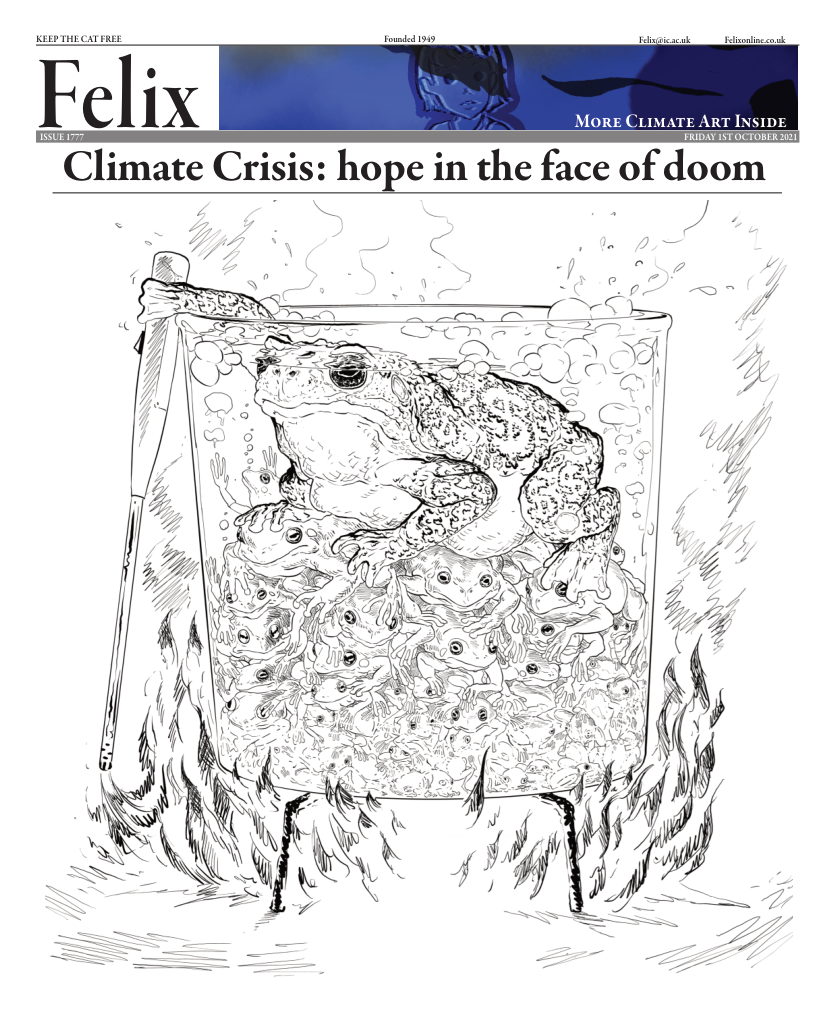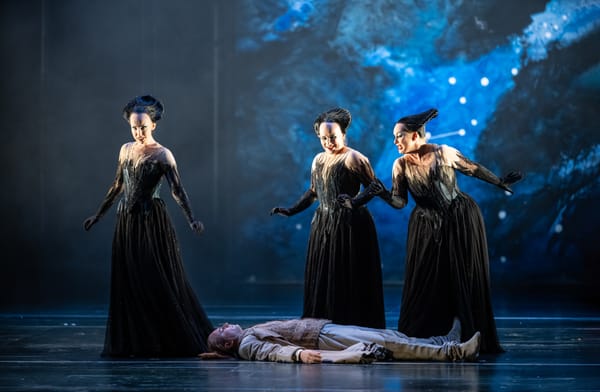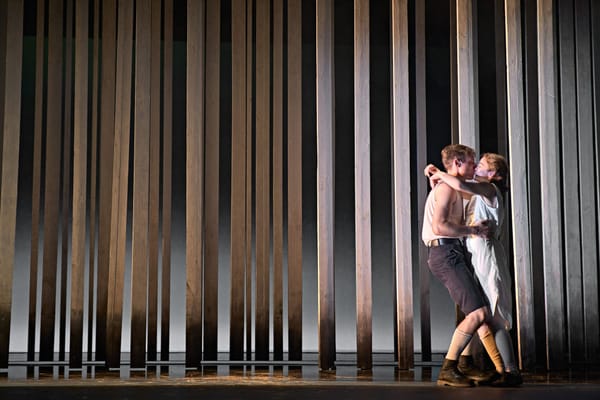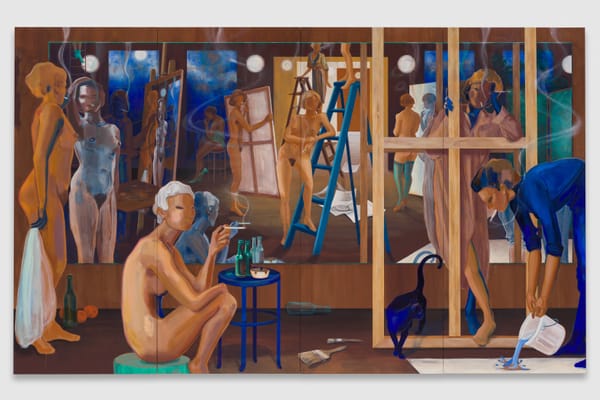Cultural Identity at Play!
Family drama and cultural identity gets entwined messy in Malindadzimu!

Malindadzimu
★★
- What: Play
- Where: Hampstead Theatre
- When: Until 30th October 2021
- Cost: £5
Identity, in particular cultural identity, is an interesting notion. Shaped by our community and a shared upbringing, it is as much an individual concept as it is societal. We can claim one but are almost always inevitably given another by society (and that usually ends up being the one that sticks!). As much as we may seek to rewrite it, the detritus of our past seeps into us and colours us for all it’s worth. This is particularly true for certain communities and nationalities that historically (and even now) face a multitude of barriers to adopting an identity of their own. Neither time nor accent, education nor shared culture is seen capable enough to unshackle this established notion.
Malindadzimu, written by Mufara Makubika and directed by Monique Touko, treads on this delicate subject, and bit more, at Hampstead theatre! Hope (played with youth by Kudzai Mangombe) grows up in Nottingham, the daughter of a Rhodes scholar from Zimbabwe Faith (played by Shyko Amos), who has chosen to make England her home and country! That is until a set of wholly unconvincing circumstances changes her mind, and she moves back to a farm in Zimbabwe with her teenage daughter. The play then follows the duo as they choose and struggle to reconnect with their lost heritage and identity, waited on by native house help Gogo (played by the ecstatic Natasha Williams). There are other sub-plot lines involving Cecil Rhodes and his enduring legacy (and mausoleum) in modern Zimbabwe and Lobengula (Sifiso Mazibuko); however, it is a little girl’s quest to find and define her identity that sits at the heart of the play.
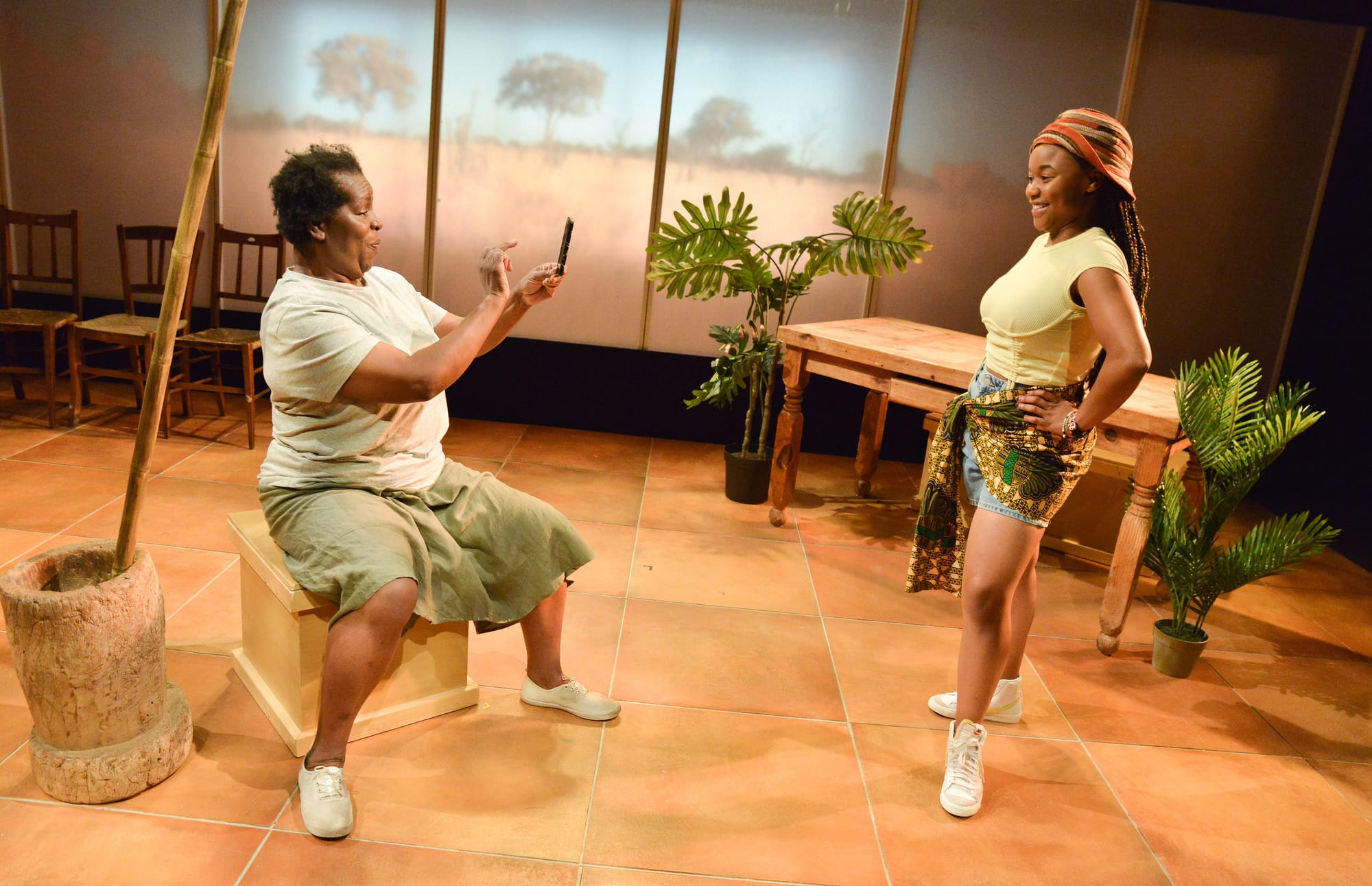
The play is executed in a small stage bound by pews two or three rows deep on three sides. The set design is somewhat minimalist, the stage populated for the most part by only a table and a few chairs that is put to fluid use craftily. A translucent screen on the backdrop serves up the Zimbabwean farmland and the countryside aesthetic to moderate success.
... dialogues are often didactic yet always feel rooted and authentic...
Driven by strong performances–none better than Natasha Williams as Gogo–the play feels intimate and resembles a small, very real, and messy family drama unfolding right in front of our eyes. The dialogues are often didactic yet always feel rooted and authentic to the characters. However, the writing feels loose at stages and the plot lines fail to converge at the end to give a convincing closure to the subject matter dealt with.

Perhaps what offers this story a poignancy and intimacy is exactly what holds it back as well. The small stage and makeshift set transitions, during which the characters, for an all too brief moment, fumble about as they set up the stage for the next act. In these changes, they render themselves no longer as Faith, Hope or Lobengula–with their perfect African accents and dialects–but as stagehands from London. This break in character and flow for a play executed in such small quarters is maybe to be expected and can almost be forgiven — but the lack of crispness in the script expounds this to such an extent that you are left to wonder where an act ends and where it begins. Is this an interlude or is this part of the play?
Sitting outside the theatre hall reading the synopsis again, I was thrown back to an LBC radio sound bite from summer of 2020 featuring Labour MP David Lammy passionately trying to convince otherwise a well-spoken, educated, and articulate 'Englishwoman' who was claiming that he was not English but that he could be (he ‘was not’, but could be) British. Such events–vivid in our memory from that dreadful summer of 2020–underscore the immediacy and the potency of the subject matter being dealt with here. And unfortunately, that is one responsibility this play has certainly neglected by attempting too many plot lines and not fleshing them out enough.
In all earnest, this is 'bold and experimental' small theatre! And thus, along with it are all the tropes that one would expect and come to require of it. Go expecting that and only that and you won’t be disappointed. But, on the other hand, if you want a telling exposition of the intricacies of cultural and national identities in the 21st century, it is only all too well to skip Malindadzimu!

